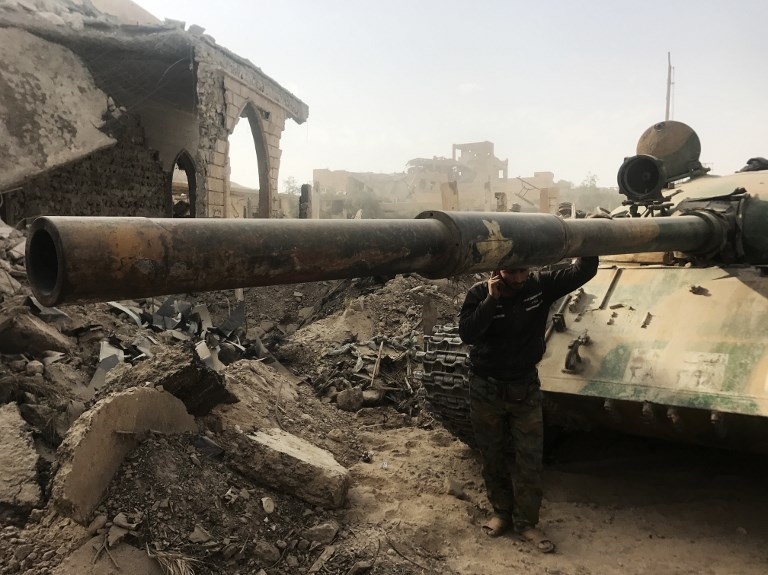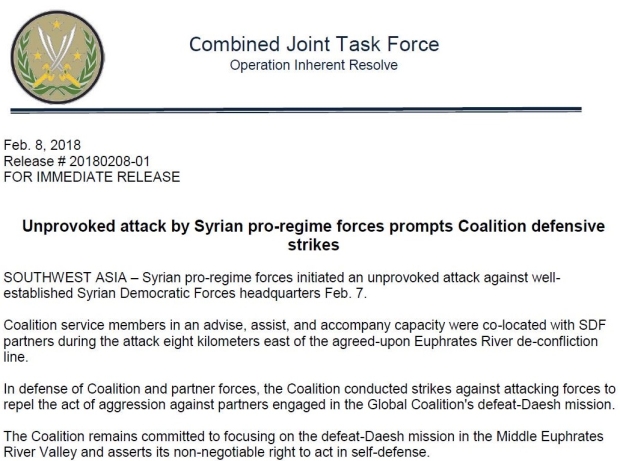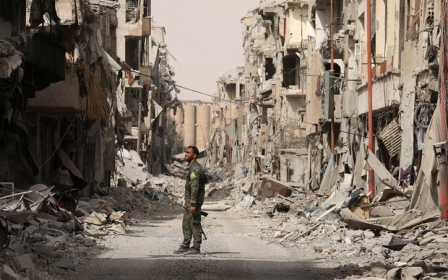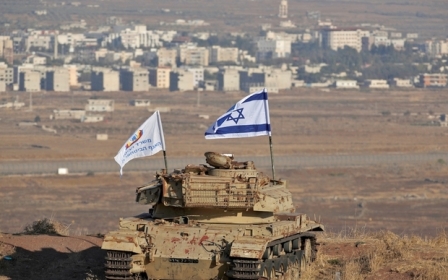US coalition kills 100 pro-Assad troops after attack on Kurd allies

The US-led coalition killed at least 100 Syrian government and allied fighters over Wednesday night in response to what it said was an "unprovoked attack" in eastern Syria, a US official said, in one of the deadliest incidents of its kind.
The flare-up lasted into the early hours of Thursday and was sparked by an attack on positions held by the Kurdish-led Syrian Democratic Forces (SDF) in Deir Ezzor province, the Combined Joint Task Force said.
The clash came against a backdrop of escalating tensions between Washington and Damascus over an increase in the suspected use of chemical weapons by the government and allied militia.
Statements carried by Syrian television stations called the bombing a "new aggression" and "an attempt to support terrorism" with a reporter describing those killed as "local people fighting (Islamic State) and the SDF".
However the defence ministry in Russia, Bashar al-Assad's principal backer, said the pro-government militants had not agreed their reconnaissance activities with Russia.
The US Central Command said that the coalition "conducted strikes against attacking forces to repel the act of aggression".
"We estimate more than 100 Syrian pro-government forces were killed while engaging SDF and coalition forces," while one SDF member was wounded, a US military official said on condition of anonymity.
The SDF and the coalition targeted the attacking forces with air and artillery strikes after "20 to 30 artillery and tank rounds landed within 500 metres (yards) of the SDF headquarters location," the official said.
According to the Syrian Observatory for Human Rights, which only confirmed 20 dead among government and allied forces, the initial attack took place near Khasham.
The town lies along the Euphrates river, southeast of the provincial capital of Deir Ezzor.
"Regime forces struck SDF positions in several villages and an oil field with artillery fire," Rami Abdel Rahman, the head of the Britain-based monitoring group, said.
"The SDF responded with artillery fire on regime positions in the town of Khasham before the intervention of coalition forces," he said.
Government and SDF fighters were involved in several skirmishes in the area last year, as they each conducted parallel operations against some of the Islamic State militant group's last bastions.
Syrian air raids kills more than 220: Monitor
Syrian government jets have pounded Eastern Ghouta, sending the death toll from a four-day assault on the rebel enclave on the outskirts of Damascus soaring past 220, according to the Syrian Observatory for Human Rights.
"These are the worst four days that Eastern Ghouta has ever gone through," said Hamza, an overwhelmed doctor at the Erbin clinic who was treating wounded patients.
"From 2011 until now, there has never been the level of bombardment we've seen in the last 96 hours."
The death toll mounted steadily throughout Thursday, with the Syrian Observatory for Human Rights giving 75 civilians dead by the evening. Three died of wounds suffered on Wednesday.
That brought to 228 the number of civilians killed since the government launched a campaign Monday of heavy air raids on the area, which has an estimated 400,000 residents.
Among them were at least 58 children, the Observatory said.
"Children and teachers are terrified that at any moment they could be hit. The siege means there is nowhere for them to escape," said Sonia Khush, Save the Children's Syria response director.
"There must be an immediate halt to the fighting and an end to the siege."
New MEE newsletter: Jerusalem Dispatch
Sign up to get the latest insights and analysis on Israel-Palestine, alongside Turkey Unpacked and other MEE newsletters
Middle East Eye delivers independent and unrivalled coverage and analysis of the Middle East, North Africa and beyond. To learn more about republishing this content and the associated fees, please fill out this form. More about MEE can be found here.





